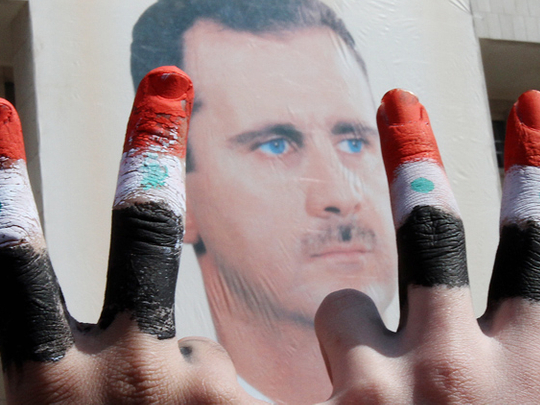
Syrian President Bashar Al Assad disappointed many of his people when he failed to offer any political reforms in his much-heralded speech on Wednesday. A government spokeswoman had hailed the speech in advance as an important landmark, indicating that the long-established emergency law might be ended, a new media law introduced, and the monopoly of the ruling Baath Party would be ended. These specific promises had raised hopes of change which had been encouraged by the resignation of the cabinet. Any such ideas were dashed by Al Assad, who ignored any thought of reform when he addressed parliament.
Instead, Al Assad focused on what he described as a grand conspiracy to sow unrest in Syria, adding grimly that he does not seek a battle, but will welcome it if one is forced on him. Such words have a particular resonance when coming from the president in charge of the Arab world's largest security apparatus.
The Syrian government's reversion to reliance on force to maintain order, and refusal to enter into any sort of dialogue with the protesters, is a continuation of decades of authoritarian rule under the one-party Baath state, which in turn was built on years of military rule following the departure of the French occupying power in 1946.
Hopes of reform were running high as unprecedented demonstrations were happening daily in large regional cities like Daraa and Latakia, but the ruling authorities clearly fear any sort of change, particularly when made under pressure. The immediate concern is that the government should avoid any large-scale massacre of demonstrators, as many commentators are reminding people of the horrific incident when the government assaulted the city of Hama, killing tens of thousands of people, in order to counter the Muslim Brotherhood.
One positive step would be to end the draconian state of emergency, which allows arrest and interrogation with no judicial or other supervision.







